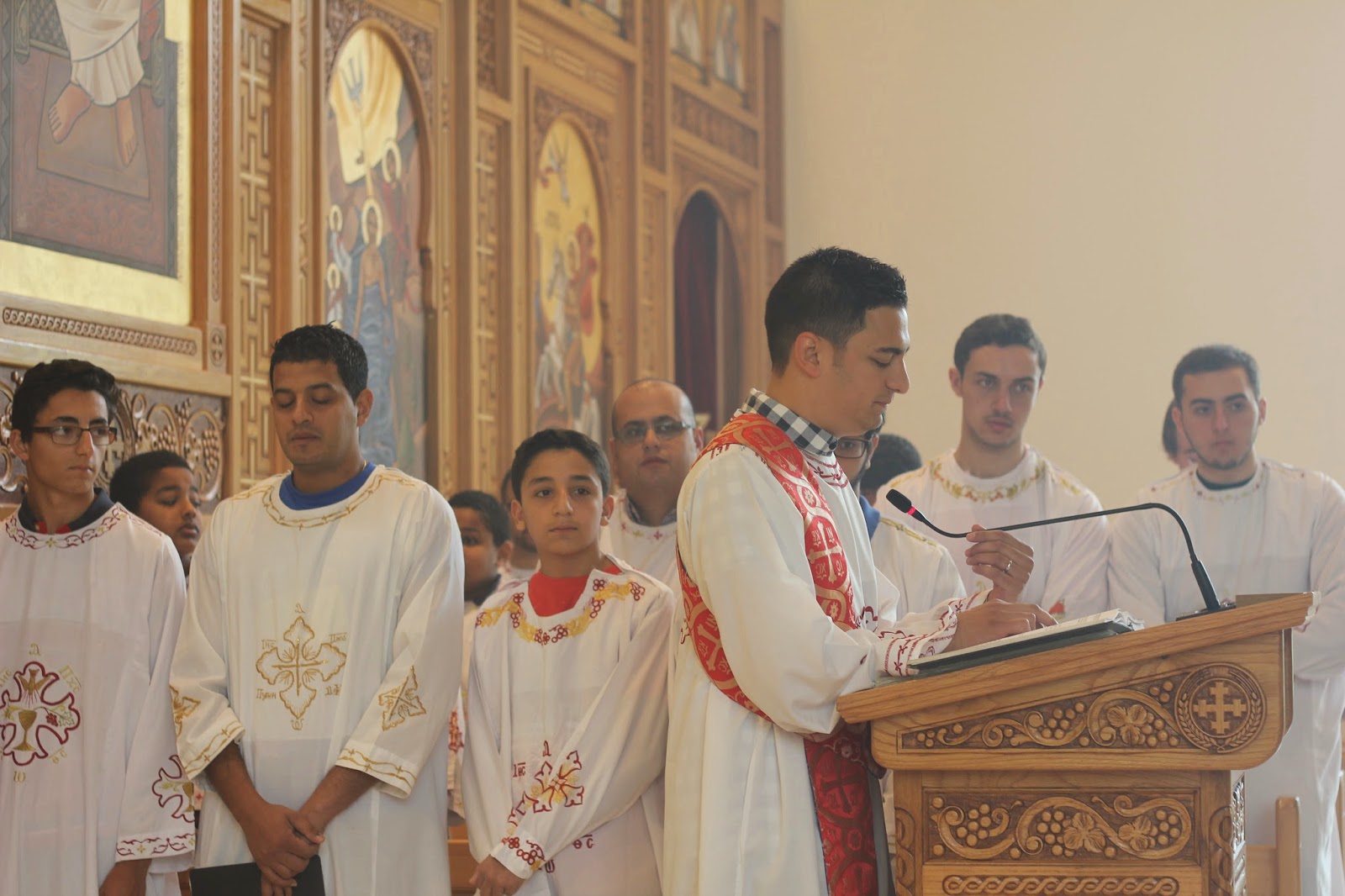Article by His Grace Bishop Angaelos
General Bishop of the Coptic Orthodox
Church
in the United Kingdom
This week we celebrate the Feast of the Cross, remembering the ultimate sacrifice of our Lord Jesus Christ for all humanity. The Cross is a symbol that best exemplifies the paradox of Christianity as it demonstrates strength in apparent weakness and victory in apparent defeat. As Christians, we are therefore called to imitate the selflessness and humility demonstrated on the Cross by our Lord Jesus Christ, not only for our own sake but for the benefit of all those we encounter.
Following from this, what has caused me great concern is the recent use of the phrase ‘I am of the Nation of the Cross’ on social media, in response to the brutal murder of 21 Coptic Christians in Libya. While many are innocently using this terminology to identify with the bravery and sacrifice of these men, as Christians it is essential that we understand that there is no room for the concept of ‘a nation of the Cross’ within Christianity as our nation is not of this world “for here we have no continuing city, but we seek the one to come” (Hebrews 13:14).
In the video that shows the martyrdom of these faithful men, one that I personally could not watch in its entirety due to the sheer brutality and degradation of humanity presented, the perpetrators of this heinous crime claimed to carry it out as a way of sending a message to the ‘people and nation of the cross.' While it is understandable that many are responding to this in an act of defiance and solidarity by using the Cross as a profile on social media, association with the concept of the ‘nation of the Cross’ is in actual fact problematic, and even detrimental. We do of course associate ourselves with the Cross as it is central to who we are, as demonstrated in the words of Saint Paul “God forbid that [we] should boast except in the cross of our Lord Jesus” (Galatians 6:14), but the concept of ‘nation of the cross’ bears many negative implications and is contrary to Christian teaching and understanding.
As Christians, we have everlasting life and the kingdom of God as our concept of nation, as our desire and our goal. We must therefore not use terminology superimposed onto us as our identity because it implies that as a ‘nation of the Cross’ we separate ourselves from the rest of humanity. As Christians, we are gathered as the Body of Christ, but do not see ourselves as separate from the rest of humanity; on the contrary, are called to be in the world as ambassadors and stewards “You are the light of the world…Let your light so shine before men, that they may see your good works and glorify your Father in heaven. (Matthew 5:14-16).
To "take up our Cross and follow Christ" (Luke 9:23) is different to declaring ourselves a nation with the Cross as its flag. The Cross was never meant to be a symbol of triumphalism but rather, one of sacrifice and humility, which we as the Body of Christ must emulate “If anyone desires to come after Me, let him deny himself, and take up his cross daily, and follow Me” (Luke 9:23).
The implication of this divisive terminology is that we as a ‘nation’ of Christians are at war and at enmity with the ‘nation (Uma) of Islam’, which is of course not the case, and we must not be coerced into a state of enmity; as Christians we have no enemies as we are called to love all equally “…love your neighbour as yourself" (Matthew 22:39). Even if others consider themselves our enemies and chose to ‘spitefully use and persecute [us]’ (Matthew 5:44), we are called to love and forgive even to the end, which has been demonstrated clearly in the response to the execution of these 21 martyrs in Libya as well as in many other similar instances in the past and contemporary history of Christianity.
For this reason, we must not naively adopt an identity or be guided by a philosophy forced upon us and not our own, because it is based on a skewed understanding of Christianity and what the Cross represents. We must always remember that in Christian teaching, the Cross is only a step along a journey which finds its fullness in the Resurrection and so our focus on the Cross can never be in isolation from our hope and joy in the Resurrection.
As Christians, we are called to set ourselves apart in terms of conduct, and to live faithfully, selflessly and with humility, seeking the power of the Resurrection as demonstrated by these 21 courageous men in Libya, remembering that while we "glory in the cross," (Galatians 6:14) "we have been united together in the likeness of His death, [and] certainly we also shall be in the likeness of His resurrection” (Romans 6:5).
Related material:
- How do we define ourselves – Sermon by HG Bishop Angaelos
- Statement by HG Bishop Angaelos following the brutal murder of 21 Coptic Christians in Libya























